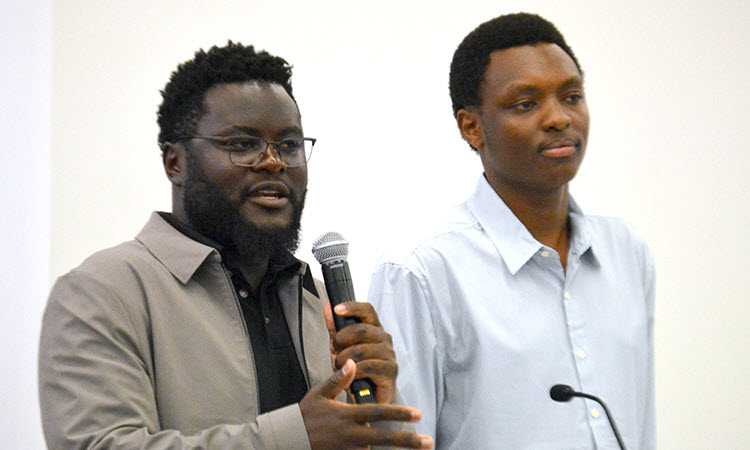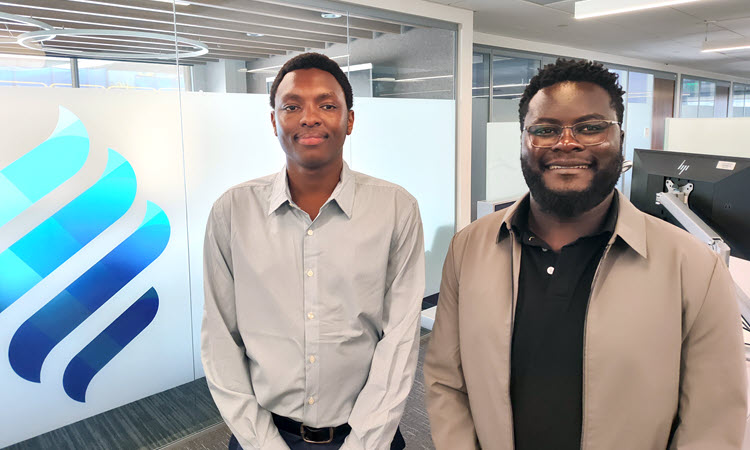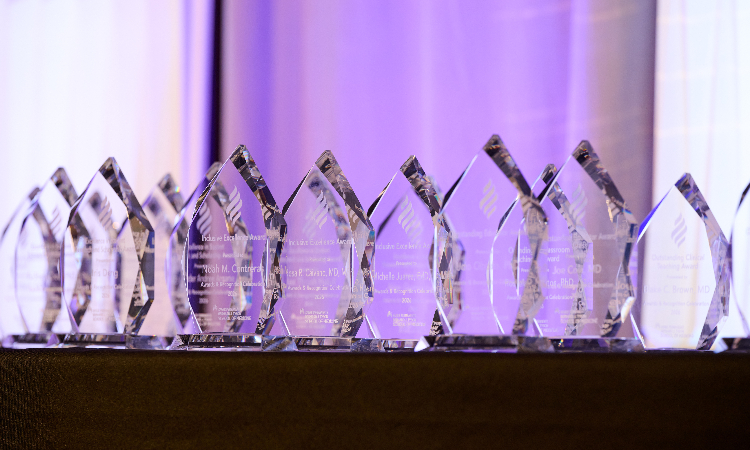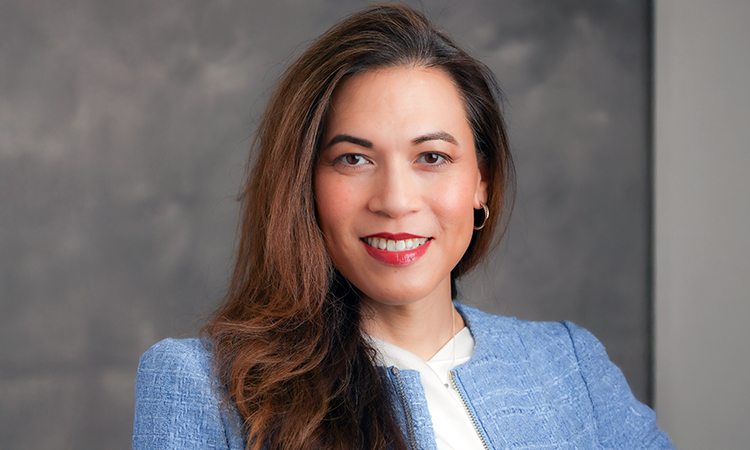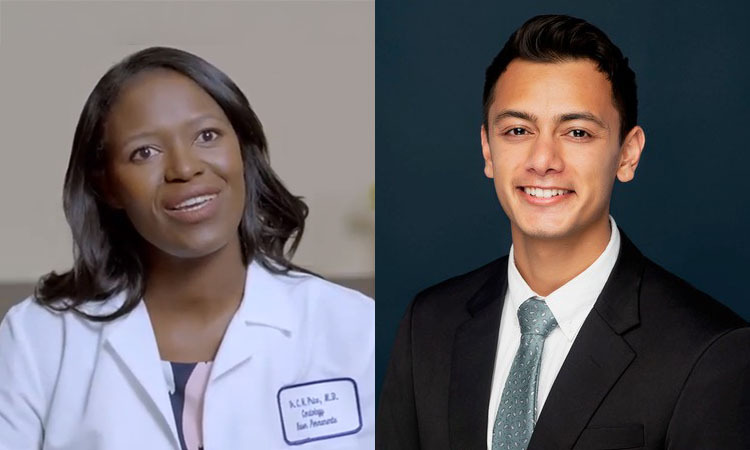The Global Health Guest Student Rotation program is led by the KPSOM Office of Global Health in collaboration with AMPATH (Academic Model Providing Access to Healthcare), a worldwide consortium of universities and healthcare institutions working to improve health systems, promote equity, and reduce disparities. The program is reciprocal in nature: each year, KPSOM students travel to Eldoret, Kenya, for a four-week medical elective at Moi University.
In the following interview, which has been lightly edited for clarity and length, the two students shared their thoughts about the experience.
What has been the most valuable aspect of your time at KPSOM?
Adrian: I think in total, the clinical experience at the hospital, in urology and cardiology. I've had a bit of exposure to both—seeing the use of technology like the da Vinci robot to cut down on patients' days in the hospital and this bunch of technologies which help the patient recover better has been a highlight for me. Then, seeing a lot of the preventive work done at Kaiser Permanente, with their proactive care and complete care programs, has also been impactful.
Peter: For me, one of the most valuable experiences is observing robotic surgery. This showed me how high-fidelity technology can be used to improve patient care. In addition to the CAD (coronary artery disease) lab and electrophysiology labs [at Kaiser Permanente Los Angeles Medical Center], the medical training at KPSOM—using 3D reconstruction tools in the anatomy lab, simulation mannequins, and standardized patients—was impactful. Also, seeing how patients are treated with dignity... the approach where patients are given shared decision-making with physicians really had an impact on me.
What impact has this experience had on your future as a physician?
Peter: My focus in medicine—I'd like to be involved in urology. My experience here, especially with robotics, showed me that there are advances I could take back to Kenya to improve our medical system and give better patient care. I'm also interested in community health and leadership because I believe community health is the root of medicine, and providing care to the grassroots is vital. At Kaiser Permanente, I observed patients being allowed shared decision-making with physicians, and the focus on preventive care has really shifted my view on how healthcare could be implemented. Instead of focusing on a reactive model, we could focus more on proactive care—managing conditions before they start.
Adrian: When I came into medicine, I was more focused on getting into a surgical specialty and operating on patients. But then I was exposed to different specialties and internal medicine, especially cardiology. That has been my clinical focus, though I have interests beyond the clinical aspects of medicine. I have a startup called Uzimatek–a combination of the Swahili word uzima, which means well-being, and tech, for technology–which was founded in 2023. We develop software solutions to optimize and streamline patient care in the hospital. And so that has been a journey for me, trying to see the kind of impact I can have even outside the clinical setting and having systems put in place that can serve patients better.
What have you learned from your exposure to the U.S. healthcare system overall?
Adrian: If you compare the average healthcare system in the U.S. to the one in Kenya—obviously here there are disparities [in the U.S.], but in Kenya, they're even bigger. A huge chunk of healthcare payments are out-of-pocket. There is very little private insurance penetration. Most people are covered by an overarching mandatory government insurance called the Social Health Insurance Fund. That fund tries to do a lot—prevention, chronic disease management, active treatment—but resources are strained, so they can't pay as much.
The [Kenyan] healthcare system is divided. The public healthcare system is incredibly frail and not as robust as here. The private healthcare system is huge and provides care almost equivalent to here for those who can afford it. Doctors tend to work at multiple institutions... for example, a doctor could be at a public hospital, a private clinic, and another private hospital. So, you're exposed to both sides as a healthcare professional in Kenya. But the uptake of technologies like electronic health records is still lacking. The numbers aren't exact—something between 30% and 40% of facilities have electronic records. The good thing is … it's a vibrant economy, a huge workforce, and a technology-loving country. Kenya is one of the few African countries where you can pay for anything and go anywhere without having cash. We use a technology called M-Pesa for everything, which is like Apple Pay. People adopt technologies well. That's the hope for the things we're building—that … administrators will see the point of electronic versus physical records.
Peter: There is a big divide between Kenya and the U.S. technologically. One way to bridge this is by introducing better, integrated healthcare systems across the country. For example, individual hospitals have different electronic health records that aren't shared, so records are fragmented. In Kenya, we should adopt something like Kaiser Permanente has—an integrated record that ensures patients can access all their records regardless of where they go.
As you prepare to return home, any parting thoughts about your experience?
Peter: I’d like to say thank you to everyone that made this possible. We really appreciate it. For us to come here was not an easy road [and] it’s something I think I’ll remember for the rest of my life. It’s been a life-changing experience.
